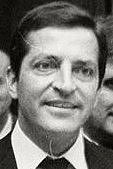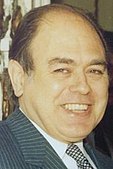
Back Eleiciones xenerales d'España de 1977 AST Eleccions generals espanyoles de 1977 Catalan Parlamentswahl in Spanien 1977 German Elecciones generales de España de 1977 Spanish 1977ko Espainiako hauteskunde orokorrak Basque Espanjan parlamenttivaalit 1977 Finnish Élections générales espagnoles de 1977 French Eleccións xerais de España de 1977 Galician 1977-es spanyolországi általános választás Hungarian Elezioni generali in Spagna del 1977 Italian
| |||||||||||||||||||||||||||||||||||||||||||||||||||||||||||||||||||||||||||||
All 350 seats in the Congress of Deputies and 207 (of 248) seats in the Senate 176 seats needed for a majority in the Congress of Deputies | |||||||||||||||||||||||||||||||||||||||||||||||||||||||||||||||||||||||||||||
|---|---|---|---|---|---|---|---|---|---|---|---|---|---|---|---|---|---|---|---|---|---|---|---|---|---|---|---|---|---|---|---|---|---|---|---|---|---|---|---|---|---|---|---|---|---|---|---|---|---|---|---|---|---|---|---|---|---|---|---|---|---|---|---|---|---|---|---|---|---|---|---|---|---|---|---|---|---|
| Opinion polls | |||||||||||||||||||||||||||||||||||||||||||||||||||||||||||||||||||||||||||||
| Registered | 23,583,762 | ||||||||||||||||||||||||||||||||||||||||||||||||||||||||||||||||||||||||||||
| Turnout | 18,590,130 (78.8%) | ||||||||||||||||||||||||||||||||||||||||||||||||||||||||||||||||||||||||||||
| |||||||||||||||||||||||||||||||||||||||||||||||||||||||||||||||||||||||||||||
| |||||||||||||||||||||||||||||||||||||||||||||||||||||||||||||||||||||||||||||
The 1977 Spanish general election was held on Wednesday, 15 June 1977, to elect the Spanish Cortes of the Kingdom of Spain. All 350 seats in the Congress of Deputies were up for election, as well as all 207 seats in the Senate.
It was the first free election held in Spain since 1936, prior to the outbreak of the Spanish Civil War. It was called by Prime Minister Adolfo Suárez as part of the political reform of the Francoist regime, ongoing since shortly after Francisco Franco's death in 1975 and promoted by his successor, King Juan Carlos I. Its aim was to elect a Constituent Cortes that was to draft a new constitution, which would ultimately lead to the repealing of the Fundamental Laws of the Realm and the culmination of the country's transition to democracy.
The Union of the Democratic Centre (UCD), the electoral coalition created to serve as Suárez's political platform in government, emerged as the largest party overall, albeit 11 seats short of an absolute majority. The election surprise was the Spanish Socialist Workers' Party (PSOE) of Felipe González, which—supported by the German SPD and running a campaign intended to highlight González's youth and charisma—won 118 seats and became the main left-of-centre party by a wide margin. The Communist Party of Spain (PCE), which had been the main opposition force to the dictatorship, and the right-wing People's Alliance (AP) of former Francoist minister Manuel Fraga, performed below expectations. Turnout was high at 78.8%, the second highest for any nationwide election held ever since.[1][2]
- ^ "15-J. Elecciones en libertad y sin ira". La Vanguardia (in Spanish). 15 June 2012. Retrieved 5 July 2017.
- ^ Julve, Rafa (15 June 2017). "Curiosidades de las primeras elecciones tras la dictadura franquista en el 40º aniversario". El Periódico de Catalunya (in Spanish). Retrieved 5 July 2017.








